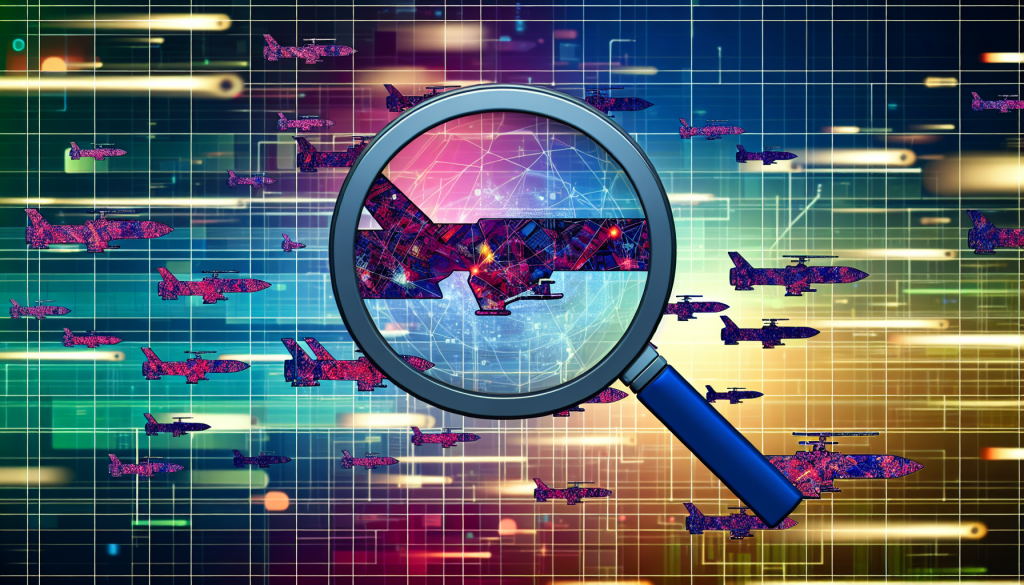Controversy at MSPO: Activism and Defense
The MSPO exhibition, hailed as one of Europe’s premier defense industry gatherings, recently became the focal point of intense scrutiny and protest. This year’s event saw a significant presence from Israeli companies, attracting not only military officials and delegations from various nations but also a passionate response from human rights activists. The convergence of these groups highlighted the complex interplay between defense capabilities and ethical considerations in global military engagements.
Allegations Against Israeli Companies
Amidst the grandeur of the exhibition, a stark controversy emerged. Activists accused several Israeli companies of being complicit in what they termed the “murder of defenceless Palestinians.” This grave accusation underscores the long-standing tensions between Israel and Palestine, with critics asserting that the products and technologies exhibited contribute to military actions that adversely affect civilian populations. The activists’ rhetoric was pointed and unyielding, framing the presence of these companies at the event similarly to “collaborating with Nazi Germany.” Such comparisons, while contentious, reflect the depth of feeling surrounding the Israeli-Palestinian conflict and the perceived moral responsibilities of those in the defense industry.
Police Investigation
In response to the protests, local police took the step of opening an investigation into the incidents that occurred during the exhibition. This development indicates a serious consideration of the activists’ claims and raises questions about public discourse and the boundaries of protest. The involvement of law enforcement adds a layer of complexity to the situation, as it explores the legal ramifications of activism in a space that celebrates military defense and technological advancement.
The Significance of the MSPO Exhibition
The MSPO exhibition itself is not just a venue for displaying military technology; it serves as a critical aggregation point for defense industry stakeholders. With participation from military officials and companies across the globe, the event is essential for networking, showcasing innovations, and discussing defense strategies. The Israeli contingent included notable names such as Elbit Systems, Rafael, Israel Aerospace Industries, Bird Aerosystems, D-Fend Solutions, and Smart Shooter. Each of these companies has played significant roles in developing technologies ranging from unmanned aerial vehicles to advanced defense systems, which are increasingly at the center of international discussions on military ethics.
The Role of Israeli Defense Companies
Israeli defense companies are recognized for their cutting-edge innovations, often developed in response to the unique security challenges faced by the state of Israel. These technologies have been marketed not only to allies but also to countries seeking to modernize their military capabilities. The defense sector in Israel is a significant part of its economy, with companies often finding themselves in the spotlight regarding ethical implications, especially regarding the use of their technologies in conflict zones like Gaza and the West Bank.
Global Reactions and Implications
The protests at MSPO highlight a growing trend where defense exhibitions are becoming arenas for broader discussions on human rights and ethical accountability. Internationally, reactions to Israel’s military engagements often vary, influencing bilateral relations and defense agreements. As global scrutiny continues, defense companies may face increasing pressure to demonstrate their commitment to ethical practices and transparency in their operations.
Activism in Modern Defense Exhibitions
The activism at MSPO is emblematic of a larger movement where voices advocating for human rights are becoming more prominent in spaces traditionally reserved for military and defense activities. These protests signify not just a rejection of specific companies or technologies, but also a broader call for accountability in the ways nations engage in military trade and warfare. Such activism poses essential questions about the roles and responsibilities of corporations in conflict situations, urging a reflection on how business practices intersect with humanitarian concerns.
A Complex Landscape
The events at the MSPO exhibition reveal the intricate and often contentious relationship between military technology, activism, and ethical accountability. As the defense industry continues to evolve, so too will the discussions surrounding its impact on global peace and security. The diverging narratives—of advancement in defense technologies versus the imperative to protect human rights—will likely persist, shaping the future of military engagements and public sentiment across the world.

